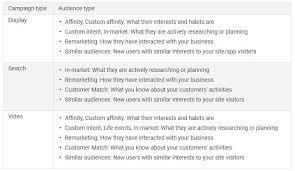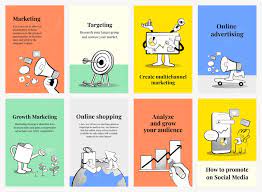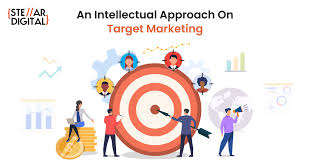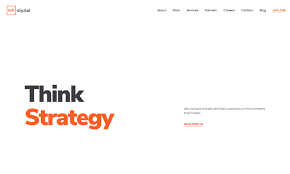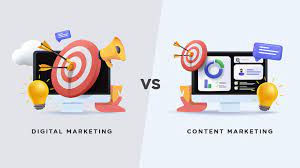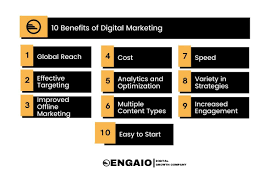Targeted Online Marketing Strategies: Reaching the Right Audience for Success
In today’s digital age, where online platforms have become an integral part of our lives, businesses must adapt their marketing strategies to effectively reach their target audience. Gone are the days of generic, one-size-fits-all marketing campaigns. The key to success lies in implementing targeted online marketing strategies that focus on reaching the right audience with the right message at the right time.
So, what exactly are targeted online marketing strategies? Simply put, they involve identifying and segmenting your audience based on various factors such as demographics, interests, behaviour patterns, and purchasing habits. By understanding your audience’s needs and preferences, you can tailor your marketing efforts to resonate with them on a deeper level.
One of the most effective ways to implement targeted online marketing strategies is through data analysis. By leveraging data analytics tools, businesses can gain valuable insights into their customers’ behaviour and preferences. This data can then be used to create detailed customer profiles or buyer personas, allowing marketers to understand their audience’s pain points and motivations better.
Once you have a clear understanding of your target audience, it’s time to develop content that speaks directly to them. Personalisation is key here. Whether it’s through email marketing campaigns or social media ads, tailoring your content based on individual preferences can significantly improve engagement and conversion rates. By delivering relevant content that addresses specific pain points or offers solutions to their problems, you establish a connection with your audience that builds trust and loyalty.
Another effective targeted online marketing strategy is search engine optimisation (SEO). By optimising your website for relevant keywords and phrases that align with your target audience’s search queries, you increase your chances of appearing in search engine results pages (SERPs). This ensures that when potential customers are actively searching for products or services like yours, they find you easily.
Social media platforms also play a vital role in targeted online marketing strategies. With billions of users worldwide, platforms like Facebook, Instagram, and LinkedIn offer powerful advertising tools that allow businesses to target specific demographics, interests, and behaviours. By creating compelling ad campaigns that resonate with your target audience’s preferences and values, you can effectively reach the right people at the right time.
Additionally, influencer marketing has emerged as a popular targeted online marketing strategy in recent years. Collaborating with influencers who have a strong following in your niche can help you tap into their audience and gain credibility. By selecting influencers whose values align with your brand and whose followers match your target audience, you can increase brand awareness and drive conversions.
Finally, it’s crucial to continuously monitor and measure the effectiveness of your targeted online marketing strategies. By analysing key metrics such as click-through rates, conversion rates, and engagement levels, you can identify what works and what needs improvement. This data-driven approach allows you to refine your strategies over time for optimal results.
In conclusion, targeted online marketing strategies are essential for businesses aiming to stand out in today’s competitive digital landscape. By understanding your audience’s needs and preferences through data analysis, personalising content, leveraging SEO techniques, utilising social media platforms effectively, collaborating with influencers, and measuring results diligently – you can create impactful campaigns that reach the right audience at the right time. Embrace these strategies to maximise your online marketing efforts and achieve success in today’s digital era.
5 Essential Tips for Targeted Online Marketing Strategies in the UK
- Develop a plan
- Identify the right channels
- Create relevant content
- Track performance
- Test & refine
Develop a plan
Develop a Plan: The Foundation of Successful Targeted Online Marketing Strategies
When it comes to implementing targeted online marketing strategies, one crucial tip stands out above the rest: develop a plan. Without a well-thought-out plan in place, your marketing efforts may lack direction and fail to reach the intended audience effectively. A solid plan serves as the foundation for success in the dynamic world of digital marketing.
To begin, start by clearly defining your goals and objectives. What do you hope to achieve with your targeted online marketing strategies? Whether it’s increasing brand awareness, driving website traffic, generating leads, or boosting sales, having specific goals in mind will help shape your strategy and guide your decision-making process.
Next, conduct thorough research on your target audience. Understand their demographics, interests, behaviours, and motivations. This information will enable you to create accurate customer profiles or buyer personas that reflect the people you want to reach. By knowing who they are and what they want, you can tailor your marketing messages accordingly.
Once you have a clear understanding of your audience, it’s time to determine which online channels are most relevant to them. Consider where your target audience spends their time online – social media platforms like Facebook or Instagram, search engines like Google or Bing, industry-specific websites or forums – and focus your efforts on those channels. This ensures that you are reaching the right people in the right places.
As part of your plan, outline the specific tactics and strategies you will employ to engage with your target audience effectively. Will you invest in search engine optimization (SEO) techniques to improve organic visibility? Will you run paid advertising campaigns on social media platforms? Will you create valuable content through blog posts or videos? Each tactic should align with your overall goals and resonate with your target audience’s preferences.
Moreover, set realistic timelines for implementing each tactic and allocate resources accordingly. Consider factors such as budget constraints and available manpower when determining how much time and effort you can dedicate to each strategy. A well-structured timeline ensures that you stay on track and allows for adjustments as needed.
Lastly, regularly monitor and measure the performance of your targeted online marketing strategies. Track key metrics such as website traffic, conversion rates, engagement levels, and return on investment (ROI). This data will provide valuable insights into what is working well and what needs adjustment or improvement. By continuously analysing results, you can refine your plan and optimize your strategies for better outcomes.
In conclusion, developing a plan is an essential tip for successful targeted online marketing strategies. By setting clear goals, understanding your audience, selecting relevant online channels, outlining specific tactics, establishing realistic timelines, and monitoring performance – you lay the groundwork for effective marketing campaigns that resonate with your target audience. Embrace this tip to ensure that your efforts are focused and impactful in the ever-evolving digital landscape.
Identify the right channels
Identify the Right Channels: A Crucial Step in Targeted Online Marketing Strategies
When it comes to targeted online marketing strategies, one of the most critical steps is identifying the right channels to reach your audience effectively. With numerous digital platforms available, it’s essential to allocate your resources wisely and focus on channels that will yield the best results.
To begin with, understanding your target audience is key. Take the time to research and analyse their demographics, behaviours, and preferences. This information will help you determine which online channels they are most likely to engage with and which ones align with their interests.
For instance, if your target audience consists of young professionals who are active on social media, platforms like Instagram or LinkedIn may be more suitable for reaching them. On the other hand, if you’re targeting an older demographic, platforms like Facebook or even email marketing might be more effective.
Consider the nature of your business as well. If you offer visually appealing products or services, platforms that focus on visual content like Instagram or Pinterest could be ideal. However, if your business is more service-oriented or requires in-depth explanations, a blog or YouTube channel might be better suited for showcasing your expertise.
It’s also important to keep up with industry trends and stay informed about emerging platforms. While established channels like Facebook and Google AdWords remain popular and effective for many businesses, new platforms can provide unique opportunities to reach niche audiences.
Remember that not all channels will work equally well for every business. It’s crucial to test different platforms and measure their performance based on key metrics such as engagement rates, click-through rates, conversions, and return on investment (ROI). This data-driven approach will help you identify which channels are delivering the best results and where you should focus your efforts.
Moreover, don’t limit yourself to just one channel. Implementing an omnichannel approach can amplify your reach and increase brand visibility across multiple touchpoints. For example, combining social media advertising with email marketing and content marketing can create a cohesive and comprehensive strategy that reaches your audience through various channels.
In conclusion, identifying the right channels is a crucial step in targeted online marketing strategies. By understanding your target audience, considering the nature of your business, staying informed about industry trends, and testing different platforms, you can ensure that your marketing efforts are focused on the channels that will deliver the best results. Embrace this tip to maximise your reach and engage with your audience effectively in the digital landscape.
Create relevant content
Create Relevant Content: The Key to Engaging Your Target Audience
In the world of targeted online marketing strategies, one tip stands out as paramount: create relevant content. In an era where consumers are bombarded with countless advertisements and messages, capturing their attention and keeping them engaged is no easy feat. However, by crafting content that speaks directly to your target audience’s needs and interests, you can make a significant impact on your marketing efforts.
Relevance is the cornerstone of effective content creation. By understanding your audience’s pain points, desires, and motivations, you can tailor your messaging to address their specific needs. This means going beyond generic marketing messages and delving into the specifics that resonate with your target demographic.
To create relevant content, start by conducting thorough research on your audience. Dive into demographics, psychographics, and behavioural patterns to gain a comprehensive understanding of who they are and what they value. This information will serve as the foundation for crafting content that truly speaks to them.
Once armed with this knowledge, focus on delivering value through your content. Provide solutions to their problems or offer insights that cater directly to their interests. Whether it’s through blog articles, social media posts, videos, or podcasts – ensure that every piece of content you produce aligns with their needs and preferences.
Personalisation is another crucial aspect of creating relevant content. Use data analytics tools to segment your audience further and develop buyer personas based on their unique characteristics. This allows you to tailor your messaging even more precisely, making it feel as if you’re speaking directly to each individual.
Remember that relevance extends beyond just the message itself; it also applies to the format and delivery channels you choose. Adapt your content strategy according to where your target audience spends their time online. If they prefer visual platforms like Instagram or YouTube, focus on creating engaging visuals or videos that capture their attention. If they are more active on LinkedIn or Twitter, craft concise yet informative posts that resonate with their professional interests.
Lastly, stay up-to-date with industry trends and developments to ensure your content remains relevant over time. Pay attention to changes in your audience’s preferences and adjust your strategy accordingly. By regularly evaluating the performance of your content and seeking feedback from your audience, you can refine and improve your approach.
In conclusion, creating relevant content is a fundamental aspect of targeted online marketing strategies. By understanding your audience, delivering value, personalising messaging, adapting to their preferred platforms, and staying current with industry trends – you can engage your target audience on a deeper level. Remember, relevance is the key to capturing attention, building trust, and ultimately driving conversions in today’s competitive digital landscape.
Track Performance: The Key to Effective Targeted Online Marketing Strategies
In the fast-paced world of digital marketing, tracking performance is an essential tip for implementing effective targeted online marketing strategies. By monitoring and analysing key metrics, businesses can gain valuable insights into the success of their campaigns and make data-driven decisions to improve their marketing efforts.
Tracking performance allows you to understand how your targeted online marketing strategies are performing in real-time. It provides a clear picture of what’s working and what needs adjustment. By closely monitoring metrics such as click-through rates, conversion rates, engagement levels, and return on investment (ROI), you can measure the effectiveness of your campaigns and identify areas that require attention.
One of the primary benefits of tracking performance is the ability to identify which channels or platforms are delivering the best results. For example, if you are running targeted ads on multiple social media platforms, tracking performance can help you determine which platform is generating the most engagement or conversions. This knowledge allows you to allocate your resources effectively and focus your efforts where they will yield the highest returns.
Furthermore, tracking performance enables you to make data-driven decisions based on actionable insights. By analysing the data collected from your campaigns, you can identify patterns, trends, and consumer behaviour that can inform future marketing strategies. For instance, if you notice a particular demographic responding positively to your content or offers, you can tailor future campaigns specifically towards that audience for even better results.
Another significant advantage of tracking performance is the ability to detect and address any issues promptly. If a campaign is underperforming or not meeting your desired goals, tracking metrics can help pinpoint the problem areas. It may be that certain elements of your messaging or targeting need adjustment or that there are technical issues hindering conversions. With this information in hand, you can take immediate action to rectify any shortcomings and optimize your campaigns for better outcomes.
Moreover, tracking performance allows for continuous improvement over time. By comparing the performance of different campaigns or iterations, you can identify trends and patterns that contribute to success. This knowledge empowers you to refine your strategies, messaging, and targeting for future campaigns, ensuring that each iteration builds upon the previous one.
In conclusion, tracking performance is a vital tip for implementing effective targeted online marketing strategies. By monitoring key metrics, businesses can gain valuable insights into their campaigns’ success and make data-driven decisions to optimize their marketing efforts. It enables you to identify successful channels, make informed adjustments, address issues promptly, and continuously improve over time. Embrace this tip to enhance the effectiveness of your targeted online marketing strategies and achieve greater success in reaching your desired audience.
Test & refine
Test & Refine: The Key to Successful Targeted Online Marketing Strategies
In the ever-evolving world of online marketing, one tip stands out as essential for achieving success: test and refine your strategies. While it’s important to have a well-thought-out plan in place, it’s equally crucial to continuously test and refine your targeted online marketing strategies based on real-time data and insights.
Testing allows you to experiment with different approaches and tactics to see what works best for your target audience. It helps you identify what resonates with them, what drives engagement, and ultimately, what leads to conversions. By testing various elements such as messaging, visuals, calls-to-action, landing pages, and even different channels or platforms, you can gather valuable data on what drives the most positive results.
A/B testing is a common method used in targeted online marketing strategies. It involves creating two versions of an ad or campaign element (A and B) with slight variations and then measuring their performance against each other. By comparing the results, you can determine which version performs better and make informed decisions about refining your approach.
It’s important to remember that testing is an ongoing process. As consumer behaviour changes and new trends emerge, it’s crucial to stay agile and adapt accordingly. Regularly reviewing your data and metrics allows you to identify areas for improvement or opportunities for growth.
Once you’ve gathered sufficient data through testing, it’s time to refine your strategies. This involves making adjustments based on the insights gained from your tests. For example, if you discover that a particular messaging style or visual element resonates more with your audience, incorporate those findings into future campaigns or content creation.
Refinement also extends beyond individual elements; it applies to the overall strategy as well. As you gain a deeper understanding of your target audience through testing, you may find that certain channels or platforms yield better results than others. By reallocating resources towards those high-performing channels and optimizing your marketing efforts accordingly, you can maximize your return on investment.
The beauty of targeted online marketing strategies is that they allow for flexibility and adaptation. By continuously testing and refining your approach, you can stay ahead of the curve and ensure that your marketing efforts are always aligned with the evolving needs and preferences of your target audience.
In conclusion, testing and refining are vital components of successful targeted online marketing strategies. By embracing a data-driven approach and regularly evaluating the performance of your campaigns, you can make informed decisions that lead to better engagement, increased conversions, and ultimately, business growth. So, don’t be afraid to experiment, learn from the results, and refine your strategies along the way. Your audience will appreciate the tailored approach, and your business will reap the rewards.



